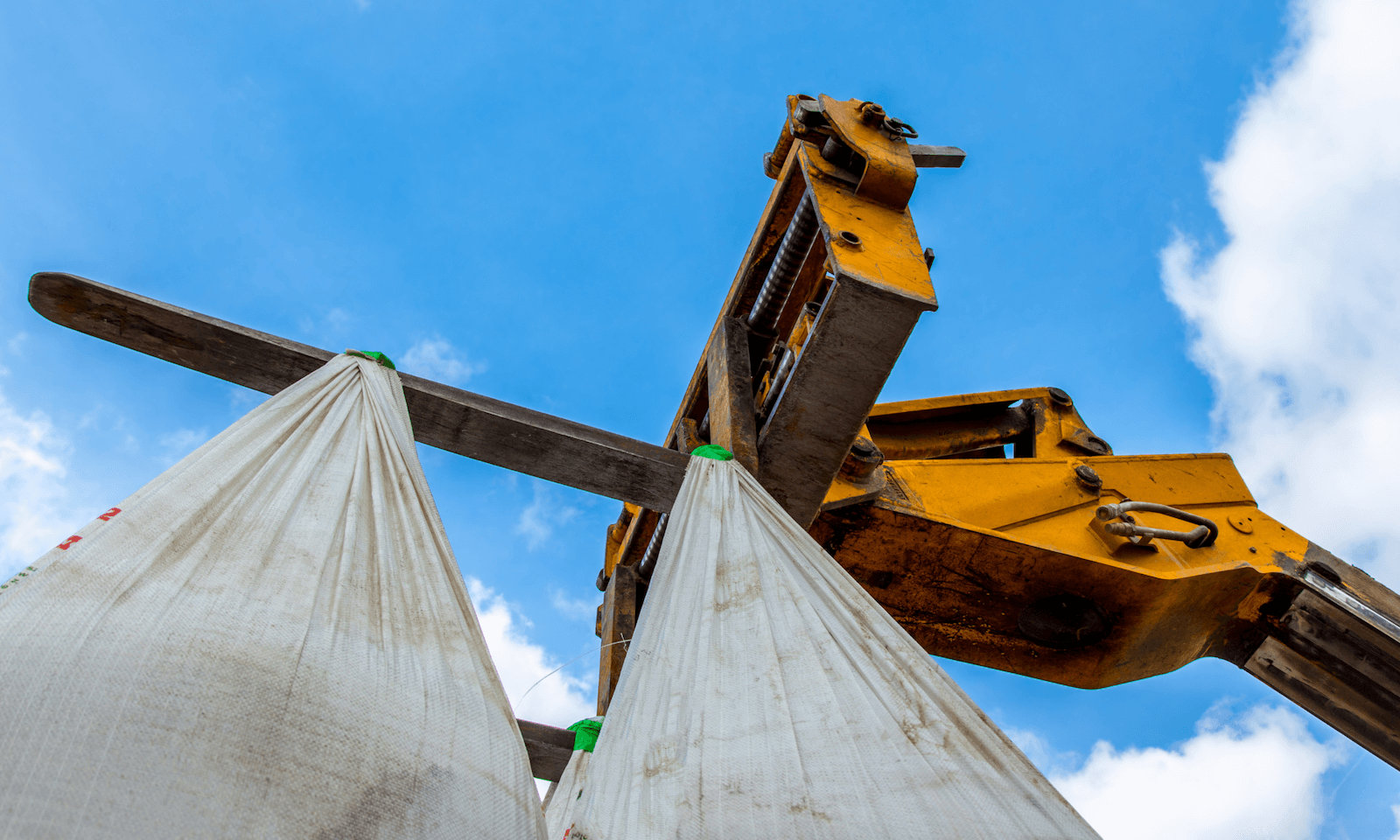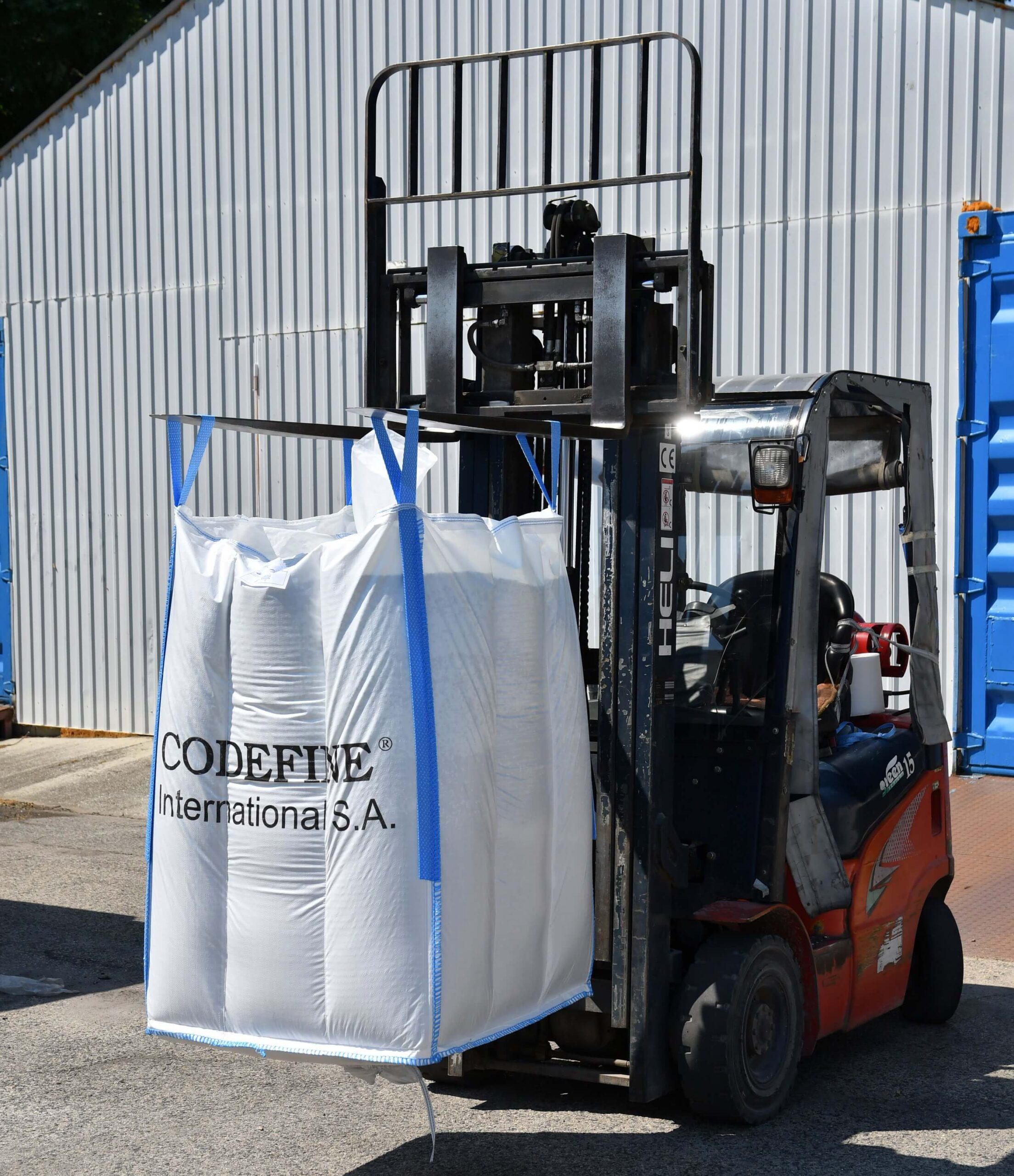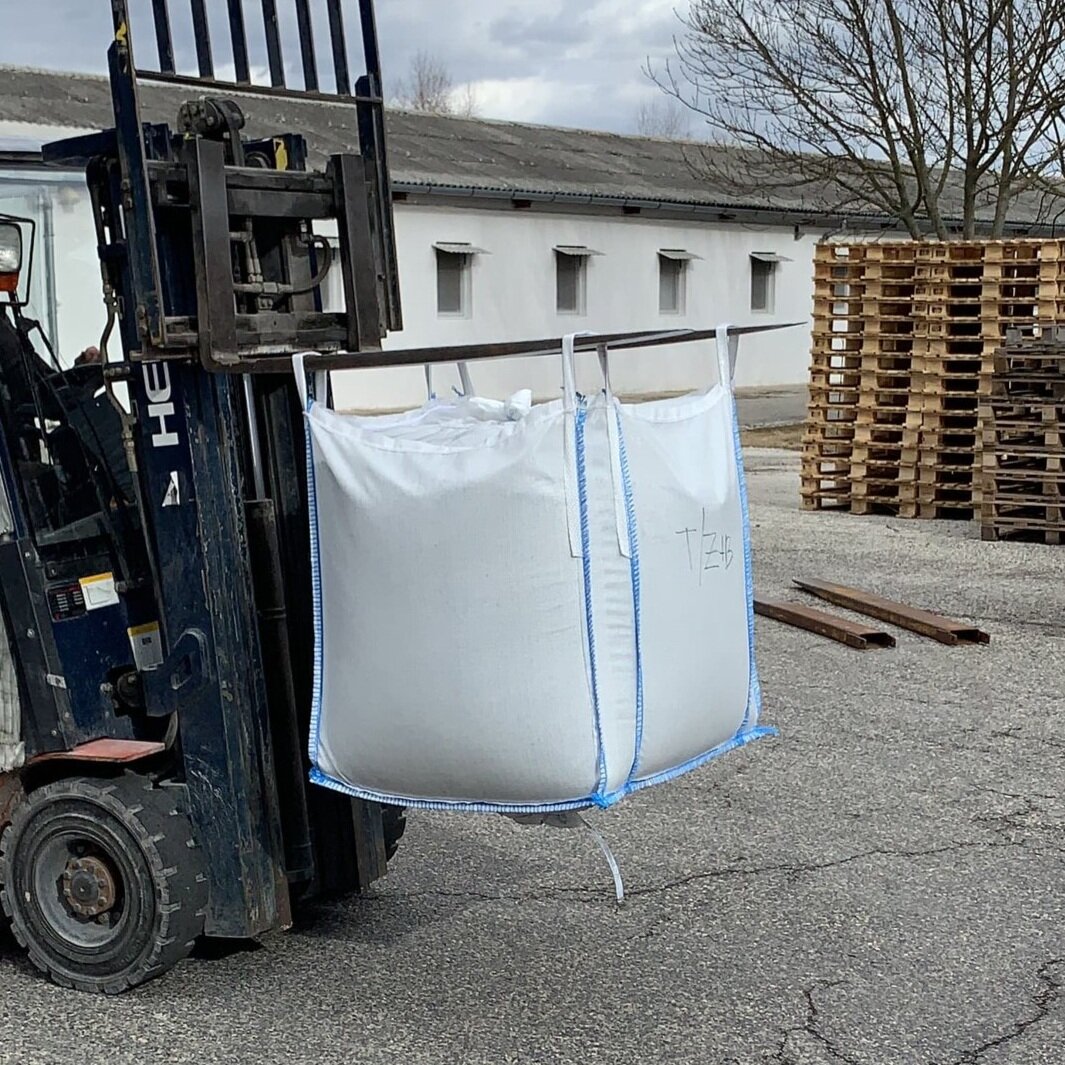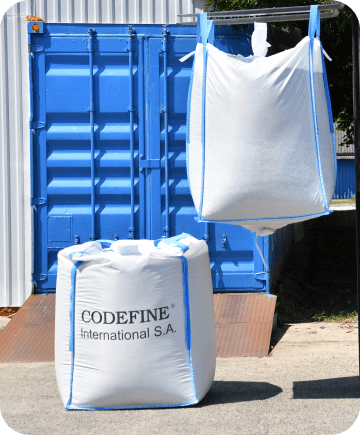Home » Posts Page » Blog » FIBC Bulk Bag Reuse: Are Used Bags a Good or Bad Choice for Your Business?

The advantages of used FIBC bags make them a practical choice for many industries, such as the agricultural industry, construction industry, pharma-grade, and more. For starters, there are obvious cost-saving benefits. The average used FIBC bags price is a fraction of what you’d have to shell out for brand-new bulk containers. If you’re ordering big volumes from used FIBC bags suppliers, savings can be substantial.
FIBC bags are one of the most environmentally-friendly packaging solutions around. However, you can boost your green credentials even more by using second-hand FIBC bags. When your FIBC bags are no longer fit for purpose, the polypropylene can be recycled and repurposed into all manner of plastic products.
Used bulk bags go through meticulous checks before being resold. As such, you can expect impressive levels of durability. Second-hand FIBCs can still be collapsed down when you’re not using them, making them suitable for locations with limited storage capacity.
Although a sustainable choice, there are some disadvantages of used FIBC bags to consider before you decide on whether they’re a fit for your business. Bulk bags are designed to carry a variety of different materials, including chemicals and toxic products. Therefore, it’s easy to see why some people have concerns about the safety hazards of used FIBC bags.
There are contamination and quality risks when reusing FIBC bags if you’re using these containers in certain industries, such as for chemicals. Although recycled bags are thoroughly cleaned and sanitized before resale, containers that were used to haul toxic compounds designed for single use shouldn’t be used for food packaging and storing animal feed. Some used FIBC bulk bags are also unsuitable for use in the pharmaceutical sector. However, many second-hand FIBCs can be reused for the same applications.

Looking to make a saving with pre-owned bulk bags? Any reputable supplier of used flexible intermediate bulk containers should commit to high industry standards, but this isn’t always a guarantee. Fortunately, you can smooth the process of buying used big bags by asking the right questions.
First, make sure you’re selecting used FIBCs that are suited to your industry. The animal industry is different from the post and parcel industry, and so on. In the construction and mining sectors, you’ll want hard-wearing used bags that can still store and transport substantial loads. Lifting loops and other attachments also need to be in place so bags are compatible with cranes and industrial machinery.
A bulk bag rated 5:1 is designed for single use only, so avoid any suppliers offering reconditioned FIBCs with this safety rating. Bulk bags with a 6:1 rating have a higher carrying capacity, making them suitable for multiple uses.
Using a trusted supplier takes all the guesswork out of buying used FIBCs. An experienced supplier will source high-quality bags from many sources, offering you a range of options, no matter what industry you work in. Rigorous testing, cleaning, and essential maintenance will also be carried out, with in-depth documents to summarize how bags have previously been used.
Although some used FIBCs aren’t put to use in certain settings, they’re a cost-effective solution for businesses looking to lower their overheads. They’re an incredibly eco-friendly option, helping organizations reduce their carbon dependency. What’s more, they provide you with a ready supply of transportation and storage containers. Polypropylene shortages can cause problems for the supply chain, making it difficult to source brand-new FIBCs at competitive prices.
Ultimately, you need to weigh up the pros and cons of purchasing used FIBC bags yourself. Although they won’t deliver the same level of durability as new bags, the lower overall cost of FIBCs makes financial sense.

To make your life easier, there are some best practices for buying and handling used FIBC bags you’ll want to follow. While any reputable supplier will have checked recycled bulk bags before reselling them, you should carry out your own assessment before committing to a purchase. Need some tips for inspecting used FIBC bags? Look for obvious signs of wear and tear.
Frayed material is a clear indicator that the carrying load of a bulk bag is compromised. You should also look for evidence of moisture damage or contamination from hazardous materials. Lifting straps and attachment points should also be checked for damage.
If you identify any of the above, take this as a red flag. Once an FIBC bag has been contaminated with mold or harmful substances, no amount of cleaning can fully recondition them. Furthermore, essential components like lifting straps can’t be restored.
How a bulk bag has been used in the past will affect its continued durability and functionality. Improper storage can have a big impact on the integrity of FIBC material. Although bulk bags are stackable, using an unsuitable method can place extra stress on bulk bags, causing the material to compress and lose its shape. Even exposure to direct sunlight can cause issues in the long term. Generally speaking, it’s exposure to extreme temperatures and humidity that causes the biggest problems.

The advantages of reused FIBC bags make them a practical choice for many industries. For starters, there are obvious cost-saving benefits. The average used FIBC bags price is a fraction of what you’d have to shell out for brand-new bulk containers. If you’re ordering big volumes from used FIBC bags suppliers, savings can be substantial.
FIBC bags are one of the most environmentally-friendly packaging solutions around. However, you can boost your green credentials even more by using second-hand FIBC bags. When your FIBC bags are no longer fit for purpose, the polypropylene can be recycled and repurposed into all manner of plastic products.
Used FIBC bags are cheaper than buying new ones, especially if you’re ordering in large volumes. They’re also an eco-friendly solution, with very little virgin material used to recondition them. When bags have reached the end of their operational life, the polypropylene used to manufacture them can be easily recycled. Most suppliers carry out strict checks to ensure FIBCs are fit for purpose before reselling them. Provided they pass these checks, you can use them in the same ways you would new ones.
However, there are some cons to consider if you’re looking for used FIBC bags for sale. Bulk bags used in certain industries should never be resold for future use. This means putting a lot of trust in your chosen supplier. A legitimate company will provide in-depth documentation that outlines where bulk bags have come from, how they’ve previously been used, and all checks they’ve been subject to.
Even with these documents, you’ll need to use your own judgment. Evidence of moisture damage, UV exposure, and wear and tear are indicators that a second-hand bulk bag shouldn’t be used again. Signs of contamination from hazardous materials are something else to watch out for.
At the end of the day, you need to consider your individual requirements. If you’re looking to slash your operational costs, used bulk bags can help you protect the bottom line. However, reconditioned FIBC bags aren’t always suitable for specific industries and applications.
To gain further insights into the recycling and reusability of FIBC bulk bags, we recommend reading our informative article titled Ways to Recycle FIBC Bulk Bags. This resource delves into various methods and strategies for promoting the sustainable utilization of these bags. By following the link, you can learn about effective ways to extend the lifespan of FIBC bulk bags, minimize waste, and contribute to a more eco-friendly approach to packaging and storage solutions.